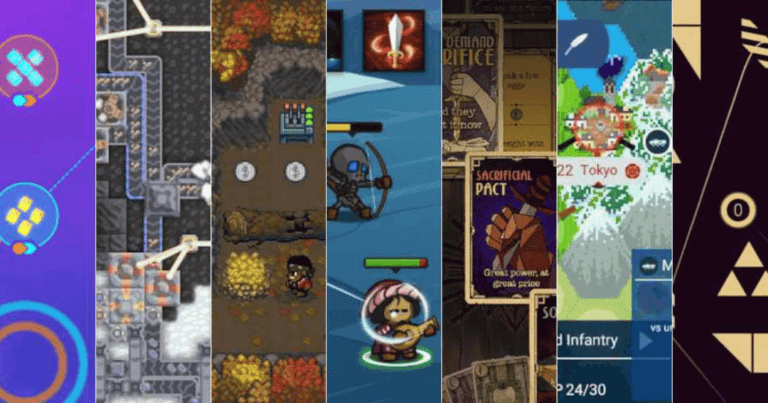Game of Thrones was a cultural hit, lasting eight seasons and 73 episodes. It deeply impacted TV with its rich story and diverse characters. The show expanded the fantasy genre thanks to top-notch production and a global scale. reviews on game of thrones.
The show focused on key characters like Eddard Stark, Daenerys Targaryen, and Jon Snow. Their stories kept fans glued to their screens. Complex villains like Cersei and the Night King added layers to the plot.
But not all was perfect. Season 8 drew criticism for its storytelling missteps. It often told things rather than showing them, breaking a fundamental rule of writing.
Emilia Clarke wished for more scenes with Daenerys connecting with key characters. The final season’s choices, like how Daenerys was portrayed, didn’t sit well with everyone. Some fans were disappointed by the ending.
We will examine these elements, offering deep insights and reviews. We aim to shed light on the community’s thoughts and the show’s long-lasting effects.
Key Takeaways
- Game of Thrones spanned a total of 73 episodes over eight seasons.
- The production created thousands of jobs across multiple continents.
- Key villains like Cersei had limited screen time in Season 8.
- Season 8 broke the cardinal screenwriting rule of “show, don’t tell.”
- Emilia Clarke desired more scenes between Daenerys and pivotal characters.
An Introduction to Game of Thrones
Diving into the Game of Thrones world is like entering a place full of power fights and complex schemes. It’s a story where cold winters never end. The battle for the Iron Throne starts, pulling many into a dangerous game for power.
George R.R. Martin began the saga with “A Game of Thrones” in 1996. Yet, it exploded in popularity when HBO aired the adaptation in 2011. This series changed fantasy storytelling, blending diverse stories of power, betrayal, and survival. Different characters tell the tale, sharing unique views and human challenges.
The rise of video games and LARP events shows how we love fantasy worlds. Each year, new thick paperbacks catch the eyes of teenage boys nationwide. Still, fantasy, including Game of Thrones, is seen by some as niche rather than mainstream.
The show’s intricate plotlines draw us into the destinies of many characters. It explores deep family conflicts and a range of emotions, from love to hate. Its quality earned the series awards, like the 1997 Locus Award and a Hugo Award.
Westeros, envisioned by Martin in 1991, slowly reshaped the fantasy genre. I was hooked after watching the first season in a week. This kind of draw is familiar to others who found the series addictive, filled with politics, magic, and dragons.
The saga is not just about the Iron Throne but also about human dreams and how society works. It speaks to us about life changes and facing tough times. Game of Thrones marked a new standard in storytelling, winning hearts around the world.
Character Analysis: Key Players in the Game
“Game of Thrones” has a lot of characters, but only a few really shape the story. Eddard Stark, Daenerys Targaryen, and Jon Snow are among these. They have deep storylines that bring out the show’s themes. Their complex personalities hook viewers and showcase the series’ depth.
Eddard Stark – The Noble Tragedy
Eddard Stark embodies honor and duty, making his story a key point for those who love deep analysis. As the Lord of Winterfell, he sticks to justice no matter what, setting high standards in Westeros’ dangerous world. Sadly, his strong morals lead to his own tragedy. This is a strong lesson about integrity in a world full of dishonesty and deceit.
Daenerys Targaryen – The Dragon Queen
Daenerys Targaryen’s path is a transformation from a weak exile to a powerful ruler. She’s set on taking back the Iron Throne, fueled by a dream of ending tyranny’s circle. Her journey mixes her soft heart with fierce resolve, showing her true Targaryen nature. The debate around her character brings up questions about power and what’s right or wrong.
Jon Snow – The Reluctant Hero
Jon Snow’s narrative is central in the series, highlighting a hero’s challenges and self-discovery. He’s the illegitimate child of Eddard Stark, seeking his place in the world. From the Night’s Watch to leading in battles, Jon’s story is about finding his true purpose. Viewers love his honest and collaborative leadership in a world torn by conflict.
All of these characters play a big role in how we see “Game of Thrones”. Their stories mix to show us the heart of the series. It’s a true masterpiece that focuses on people and their choices.
Comparing the Books and the Show
The Game of Thrones books vs show debate is hot among George R.R. Martin’s fans. The A Song of Ice and Fire adaptation has notable differences. These changes affect how readers and watchers enjoy the story.
One big change is the ages of the Stark kids and other major characters. In the show, Jon and Robb Stark are a few years older. Arya, Sansa, and Bran are older too. Daenerys Targaryen is also older. Making them older suited their roles better for TV.
The storylines of the characters have some big differences too. For example, Sansa’s marriage to Ramsay Bolton is a key part of the show. This doesn’t happen in the books. Instead, someone pretending to be her sister marries Ramsay. This changes A Song of Ice and Fire adaptation unique.
Lady Stoneheart doesn’t appear in the show. She comes back to life in the books, seeking revenge. The show decided this plot wasn’t essential, preferring a simpler story without many character returns.
Characters also face different fates and have unique developments between the show and the books. For example, Jojen Reed doesn’t live as long in the show as he does in the books. Jorah Mormont faces greyscale in the show, a threat he avoids in the books. This adds suspense to his character’s story in the show.
Here’s a look at key differences in the Game of Thrones books vs. the show:
| Aspect | Books | Show |
|---|---|---|
| Aegon Targaryen | Introduced | Minimized Significance |
| Missandei & Grey Worm’s relationship | Nonexistent, Missandei is 10 | Prominent Romance |
| Robb Stark’s Wife | Jeyne Westerling | Talisa Maegyr |
| The Night King | Nonexistent | Central Antagonist |
| Lannister Brothers’ Departure | Discord, Tyrion’s resentment | More Nuanced |
| Lady Stoneheart | Resurrected, seeking vengeance | Omitted |
The gap between the book series and its TV version influences the fanbase. The show’s adaptations sparked mixed feelings among viewers and readers. Yet, understanding and enjoying both versions can deepen our love for the epic world of Westeros.
Reviews on Game of Thrones: The Viewer Experience
As Game of Thrones went through eight seasons, the views on it changed a lot. Some people loved it, others didn’t. We’ll look at how different fans saw the show. This will show how the series gripped people in different ways.
General Audience Insights
Game of Thrones was a mix of fantasy and real feelings. The story was full of twists and turns, often surprising viewers. And it mixed in violent moments and political plots that kept viewers guessing. This led to high ratings as the show captured people’s imaginations:
| Season | Rating |
|---|---|
| Season 1 (2011) | 90% |
| Season 2 (2012) | 96% |
| Season 3 (2013) | 96% |
| Season 4 (2014) | 97% |
| Season 5 (2015) | 93% |
| Season 6 (2016) | 94% |
| Season 7 (2017) | 93% |
| Season 8 (2019) | 55% |
Seasons one to seven were very well received, with an average score of 9 out of 10. But, season eight only got 2 out of 10. This big difference showed how the show could impress and disappoint its fans.
Critical Acclaim and Criticisms
The show earned a lot of praise early on. It was loved for its deep characters and detailed world. Critics and fans both mostly liked it, as seen in the 89% average Tomatometer score from 337 critics and the 85% average audience score from over 50,000 viewers.
However, some people thought the writing got weaker as the story progressed, especially in seasons five and six. This led to less interest and a feeling that the story wasn’t as clear. Still, actors like Sean Bean and Peter Dinklage were praised for their roles.
In the end, the series’ popularity shifted from being a favorite to being controversial. This shows the wide range of experiences fans had with Game of Thrones.
Best Episodes and Moments
Game of Thrones wowed viewers with its great storytelling and unforgettable moments. The show was full of amazing twists and big battles. It has become known for making some of the best TV moments ever.
Iconic Scenes that Defined the Series
One of the show’s most memorable scenes was the Red Wedding in episode 3×09. This sad event is hard to forget. And we can’t skip over season 6’s exciting “Battle of the Bastards.” It showed us how the show mixes heart with amazing sights.
Another big point was Daenerys Targaryen’s role in episode 3×04. She shows off her dragons, proving she’s a force to be reckoned with in Game of Thrones best episodes. Then, there’s the attack by the Night King in episode 4×10. It amazed everyone, showing the series’ huge scale and big dreams.
Fan-Favorite Episodes
The show is known for episodes that really connect with people. Just look at the high scores on IMDb. “The Lion and the Rose” got a 9.7. It’s famous for its big surprises. “Blackwater” and “The Spoils of War” also got 9.7. Fans love them for their action and big story steps.
Then there’s “Baelor” with a 9.6 rating. It shocked the audience with its story decisions. And don’t forget “The Watchers on the Wall.” It matches the 9.6 score with its amazing battle scenes. These episodes show why Game of Thrones best episodes are so praised in TV history.
| Episode | Title | IMDb Score |
|---|---|---|
| 1×09 | Baelor | 9.6 |
| 1×10 | Fire & Blood | 9.4 |
| 2×09 | Blackwater | 9.7 |
| 3×04 | And Now His Watch Is Ended | 9.5 |
| 4×02 | The Lion And The Rose | 9.7 |
| 4×06 | The Laws Of Gods And Man | 9.7 |
| 4×09 | The Watchers On The Wall | 9.6 |
| 4×10 | The Children | 9.6 |
| 7×04 | The Spoils of War | 9.7 |
Character Arcs: Successes and Failures
The Game of Thrones character development is like a beautiful tapestry. It shows a mix of Westeros character journeys. Each journey has its highs and lows. For example, Ned Stark starts with noble intentions. Then there’s Theon Greyjoy, who goes through a complex change.
Daenerys Targaryen’s story was well-loved but faced huge criticism towards the end. On the flip side, Theon Greyjoy’s arc is praised. He goes from a weak person to a hero. Jorah Mormont also shines because of his loyalty.
Joffrey Baratheon and Ramsay Bolton’s arcs are seen as weak. They are mostly just really bad without depth. Bran Stark’s story as the Three-Eyed Raven also disappoints many fans.
Bronn and Brienne Of Tarth stay strong throughout the series. Bronn goes from a cutthroat to a lord. Brienne remains a unique and strong character. Robb and Catelyn Stark’s stories end too soon. Their full tales are never told.
| Character | Arc Success | Arc Failure |
|---|---|---|
| Daenerys Targaryen | Strong leadership journey | Significant decline in final episodes |
| Joffrey Baratheon | Consistent malevolence | Lack of depth |
| Ned Stark | Compelling adherence to honor | Downfall due to rigid principles |
| Theon Greyjoy | Successful redemption arc | Initial lack of direction |
| Brienne Of Tarth | Consistent and strong | None notable |
| Bran Stark | Transition into mystical role | Unsatisfactory conclusion |
| Tormund Giantsbane | Comedic brawn role | Lacks significant evolution |
Characters like Jon Snow and Cersei Lannister have very debated arcs. Jon’s evolution from a reluctant hero is admired. Yet his ending left some fans unhappy. Cersei’s evolution stops early, which is disappointing.
The Game of Thrones character development is a mix of wins and losses. Some stories finish strong, while others leave fans wanting more. This mix is what makes the Westeros character journeys so captivating.
The Final Season: Analyzing the Conclusion
The last season of Game of Thrones sparked a lot of talk. Some loved it, some didn’t. Looking at the different opinions shows us what made the show’s end so complex and controversial.
Story Decisions and Fan Reactions
The final season focused on new stories. Bran becomes a key figure, titled “Bran the Broken.” Sansa Stark becomes Queen in the North, showing her journey and strength. Tyrion’s speech underlined how stories can shape our world. Samwell Tarly added an interesting idea by suggesting everyone should get a vote.
Some fans loved the season for its big moments and looks. Others thought it was bad or boring. They said it was too easy to guess. But a few people thought the ending was right for the show.
Legacy of the Final Episode
The last episode stands out for Jon Snow killing Daenerys Targaryen. Even though some saw it coming, it was still a powerful scene. The episode’s pictures and scenes got a lot of praise too.
| Element | Analysis |
|---|---|
| Bran’s Ascension | Reflects a shift in narrative complexity and ideological conflicts. |
| Tyrion’s Speech | Emphasizes the significance of stories in shaping leadership choices. |
| Stark Endings | Sansa becomes Queen of the North, Arya sails west, and Jon retreats to the freezing wasteland. |
| Sam’s Proposal | Introduces the idea of universal suffrage to the council of Westeros. |
| Viewer Sentiments | Predominantly negative, with a minority finding satisfaction in the finale. |
The show’s end also spotlighted smaller characters. Davos, Brienne, and Sam showed us unity and hope. The last scene, with advisers and common folk planning together, hinted at better times. Despite mixed reviews, the show’s ending marked TV history.
Top Critiques of Game of Thrones
Game of Thrones was praised for its big story and deep characters. But, many didn’t like how the story moved, the plots, and some characters acting strangely. These problems changed how fans see the show in the long run.
Pacing and Plot Developments
In Game of Thrones, the speed of the story changed a lot between the seasons. The first six seasons told a story that was liked a lot, especially season 6, loved by 939 people out of 1,029. But season 8 was criticized for going too fast. Over 3,200 users out of 3,587 thought season 8 was not as good. Specifically, 2,095 users out of 2,464 gave it a low 2/10, saying the story quality dropped significantly.
This change in speed made the story hard to follow and not as interesting. A shorter season with less detail was thought to be a reason for this lower quality by 102 out of 115 people.
Character Decisions and Out-of-Character Moments
In the final season, characters acted in ways that didn’t make sense. Many fans didn’t like this. For example, 1,116 users out of 1,265 wanted the last episode to be redone because of this. These bad character moments made people unhappy and less connected with the story.
Daenerys Targaryen’s surprising actions in the last episodes were confusing and felt sudden to many. Most of the audience – 1,884 out of 2,079 people – was disappointed in character decisions. The show’s rating dropped from 89% to 55% in the last season, shown by Tomatometer and audience scores.
| Season | Audience Rating |
|---|---|
| Season 1 | 90% |
| Season 2 | 96% |
| Season 3 | 96% |
| Season 4 | 97% |
| Season 5 | 93% |
| Season 6 | 94% |
| Season 7 | 93% |
| Season 8 | 55% |
Even though Game of Thrones won many awards, problems in the last season hurt how much people enjoyed the show. This shows how much story and character consistency matter to viewers.
Positive Ratings and Critiques
Even though many internet users found the finale disappointing and easy to predict, Game of Thrones got high reviews overall. One critic even liked the ending, calling it satisfying. The last season had 13 episodes and still wowed fans with its epic scenes and surprises.
Game of Thrones won praise for its big, cinematic feel and unexpected twists. Viewers loved finding out what happened to main characters like Arya, Jon, Sansa, and Bran. The show also got kudos for looking at lesser-known characters Davos and Brienne in its final moments.
Some viewers saw the ending as hopeful for the future of Westeros. The drama mixed with moments of light made the series memorable. It showed a unique blend of serious storytelling and fantasy.
Looking closely, fans and critics loved the actors’ performances and the show’s look. Some scenes and episodes are now famous for their quality. These successes have helped make Game of Thrones a legendary show.
Even with a few detractors, the positive reviews show how Game of Thrones captured hearts. Its final season stirred strong feelings worldwide, proving the show’s deep impact.
Conclusion
The Game of Thrones series changed TV over eight years by its huge fanbase. It left a rich tapestry of stories, complex characters, and deep themes. From the final political debates to Sansa’s rule, every part hit home with fans. This makes it an unforgettable part of our culture.
Tyrion’s talk about the power of stories in the finale was a key moment. It highlighted how Game of Thrones connected with us and how it influenced TV. Bran becoming king, with his special insights, showed the unique narrative choices of the show. His character as a living A.I. hinted at his exceptional leadership.
The show also raised big ideas about freedom, fairness, and leading a nation. Daenerys’s tragic turn and Sam’s idea of voting brought up important topics. Their stories, along with others’, made the show a benchmark for high-quality fantasy storytelling. It’s a revolution in TV, changing what we expect from epic dramas. For more detailed reviews, Time Magazine provides a detailed analysis of the series’ end and its themes.















